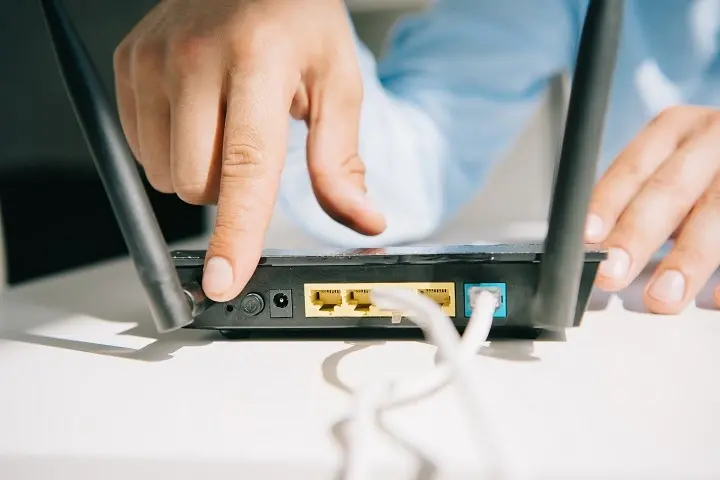How Long will Affordable Connectivity Program Last ?

For millions of American households, the Affordable Connectivity Program (ACP) has been a game-changer, helping to make high-speed internet more accessible and affordable. Launched in late 2021, this Federal Communications Commission (FCC) initiative provides a $30 monthly subsidy ($75 on Tribal lands) that can be applied toward internet and mobile services.
But the big question on many minds is: How long will the Affordable Connectivity Program last? Will this vital financial aid continue to bridge the digital divide for years to come, or is it a temporary measure with an expiration date?
In this post, we'll explore the key factors that will determine the longevity of the ACP. From funding sources to policymaker priorities, here are 7 considerations regarding the potential lifespan of this broadband affordability program.
1. The ACP's Funding Roots To understand the ACP's durability, we first need to look at its origins. The program didn't emerge from scratch - it's an extension of the Emergency Broadband Benefit (EBB) program established in 2020 through the Consolidated Appropriations Act.
The EBB provided a temporary $3.2 billion fund to help struggling households access the internet during the COVID-19 pandemic. When that funding pool inevitably depleted, the longer-term ACP took its place using $14.2 billion allocated from the Infrastructure Investment and Jobs Act.
2. The $14.2 Billion Funding Cap Speaking of that $14.2 billion. Since the ACP's funding doesn't come from an evergreen source, there's a finite amount available. Conservative estimates suggest this could sustain the program for 4-5 years based on current enrollment levels.
However, several variables could cause the money to get used up faster - or last longer:
Higher than projected enrollment numbers (the White House aims to reach 48 million eligible households) would accelerate fund depletion
If inflation causes broadband rates to spike, households may seek higher ACP benefits to cover costs Program adjustments like changing income eligibility limits could impact funding usage
Ultimately, tracking the "burn rate" of the $14.2 billion allocation versus enrollment will hint at the ACP's longevity.
3. The Future of Broadband Affordability Legislation While the ACP has firm funding roots today, its tomorrow may hinge on new legislation and government budgets. The White House and FCC have indicated they hope the ACP becomes a permanent program to bridge the digital divide.
To make this a reality, Congress would likely need to approve additional broadband affordability subsidies, perhaps through annual budget allocations or another major spending package further down the line.
4. Shifts in the Political Landscape Of course, the future of broadband affordability legislation could easily be shaped by political factors and changes in leadership. The ACP's origin stems from the Biden administration's focus on internet equity.
A shift in the balance of power or new policymakers with different priorities could impact enthusiasm and legislative efforts to extend or modify the ACP long-term. That said, affordable broadband access has historically enjoyed bipartisan support as both parties recognize its importance.
5. The State of Broadband Adoption Will the ACP's success in promoting broadband adoption contribute to its downfall? It's a paradox to consider - if the program accomplishes its goal of helping virtually all U.S. households get online, the very justification for its existence may diminish.
Some suggest the program could eventually be phased into more of a targeted subsidy focused on only the lowest income brackets. For now, the continued prevalence of a significant "adoption gap" should sustain the broad ACP for several years.
6. Potential Integration with Other Affordability Programs There's also a possibility the Affordable Connectivity Program could one day merge with other government assistance initiatives. For example, a similar Lifeline program already helps qualifying households with phone and internet costs.
Policymakers could eventually look to streamline and consolidate various affordability programs under one umbrella rather than continue funding them separately. This "next evolution" wouldn't necessarily mean the ACP's termination, but rather its integration into a revamped framework.
7. Impact on Competition and the Broadband Market Finally, the ACP's influence on the overall broadband landscape is another factor that could affect its durability. Proponents have argued the program helps foster more competition by giving low-income households affordable access to the Internet and a choice of providers.
However, some critics have cautioned that ACP subsidies could enable predatory pricing and dull incentives for companies to keep rates low. Ongoing market impacts and feedback from industry stakeholders may sway policymakers when it comes time to re-evaluate the program's future.
The Bottom Line on the Affordable Connectivity Program's Lifespan
Ultimately, the Affordable Connectivity Program is in its relative infancy with plenty of runway ahead based on current funding levels. However, the timelines and factors outlined above suggest its long-term viability is still very much to be determined.
For the tens of millions of low-income Americans who've benefited from the broadband subsidies already, the ACP has been instrumental in helping them stay connected in the digital era. Only time will tell if this program manages to establish itself as a permanent pillar in championing digital equity, or if it will eventually run its course when its job of proliferating affordable connectivity is done.
No matter what the future holds, programs like the ACP have played a vital role in recognizing internet access as an essential utility for modern life. Ensuring affordability remains a priority should continue benefiting individuals and society as a whole for years to come.
Call (855) 210-8883 to learn more about the ACP Program now!